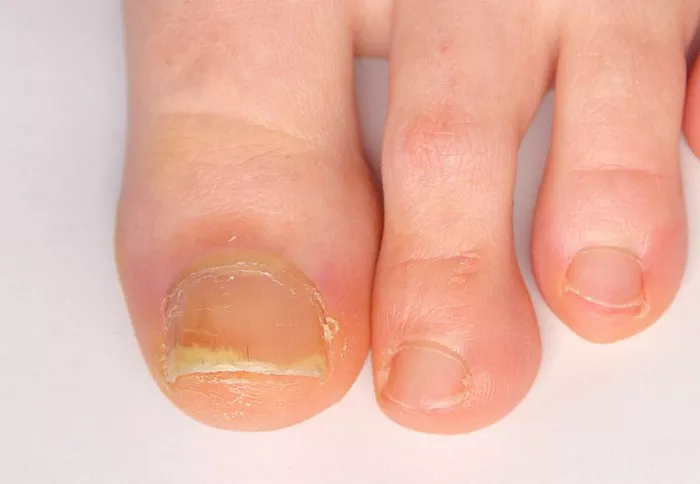Hidradenitis Suppurativa (HS) is a chronic inflammatory skin condition characterized by painful, recurrent nodules and abscesses primarily affecting areas with apocrine sweat glands, such as the armpits, groin, and buttocks. While there is no cure for HS, various treatment approaches aim to manage symptoms and improve patients’ quality of life. Among these approaches, dietary modifications have gained attention as potential adjunctive therapies. In this article, we delve into the research surrounding the best diet for individuals with Hidradenitis Suppurativa, exploring nutritional strategies that may help manage symptoms and reduce flare-ups.
Understanding Hidradenitis Suppurativa and its Triggers
Before delving into dietary interventions, it’s crucial to understand the underlying mechanisms of Hidradenitis Suppurativa and the factors that can trigger flare-ups. HS is believed to result from a combination of genetic, hormonal, and environmental factors, leading to inflammation and obstruction of hair follicles and sweat glands. Common triggers for HS flare-ups include:
1. Obesity: Excess weight can exacerbate HS symptoms due to increased friction and sweating in skin folds.
2. Smoking: Tobacco smoking has been strongly associated with the development and worsening of HS.
3. Poor Diet: Certain dietary factors, such as processed foods, high sugar intake, and dairy consumption, may contribute to inflammation and worsen HS symptoms.
4. Hormonal Changes: Fluctuations in hormone levels, such as those occurring during puberty, menstruation, or pregnancy, can trigger HS flare-ups in susceptible individuals.
Given the potential influence of diet on inflammation and overall health, researchers have begun investigating the role of nutrition in managing Hidradenitis Suppurativa symptoms.
The Anti-inflammatory Diet: A Potential Approach for HS Management
One dietary strategy that has shown promise in managing inflammatory conditions is the anti-inflammatory diet. This eating pattern focuses on consuming whole, nutrient-dense foods while minimizing processed and inflammatory foods. Key components of the anti-inflammatory diet include:
1. Fruits and Vegetables: Rich in antioxidants and phytonutrients, fruits and vegetables help combat inflammation and support overall health. Aim to include a variety of colorful fruits and vegetables in your diet, such as berries, leafy greens, tomatoes, and bell peppers.
2. Healthy Fats: Omega-3 fatty acids found in fatty fish, flaxseeds, chia seeds, and walnuts have potent anti-inflammatory properties. Additionally, incorporating sources of monounsaturated fats, such as olive oil and avocado, can help reduce inflammation and promote skin health.
3. Lean Protein: Opt for lean protein sources such as poultry, fish, tofu, and legumes. These foods provide essential amino acids for tissue repair and help maintain muscle mass without contributing to inflammation.
4. Whole Grains: Choose whole grains like quinoa, brown rice, oats, and barley over refined grains. Whole grains are rich in fiber and nutrients, which can support gut health and reduce inflammation.
5. Herbs and Spices: Incorporating herbs and spices like turmeric, ginger, garlic, and cinnamon into your meals can provide additional anti-inflammatory benefits. These flavorful additions not only enhance the taste of your dishes but also offer potential therapeutic effects.
Foods to Avoid or Limit
In addition to emphasizing anti-inflammatory foods, individuals with Hidradenitis Suppurativa may benefit from minimizing or avoiding certain foods that have been linked to inflammation and HS flare-ups. These include:
1. Processed Foods:
Highly processed foods like sugary snacks, fast food, and pre-packaged meals often contain unhealthy fats, refined sugars, and additives that can promote inflammation and exacerbate HS symptoms.
2. Dairy Products:
Some individuals with HS report improvements in symptoms after eliminating dairy products from their diet. While research on the link between dairy consumption and HS is limited, dairy products may contribute to inflammation in susceptible individuals.
3. Nightshade Vegetables:
Nightshade vegetables such as tomatoes, potatoes, eggplants, and peppers contain alkaloids that may exacerbate inflammation and worsen HS symptoms in some people. However, individual responses to nightshade vegetables can vary, so it’s essential to monitor how your body reacts to these foods.
4. Saturated and Trans Fats:
Foods high in saturated and trans fats, such as fried foods, fatty meats, and commercially baked goods, can promote inflammation and should be consumed sparingly.
Hydration and Lifestyle Factors
In addition to dietary modifications, staying hydrated and adopting healthy lifestyle habits can play a crucial role in managing Hidradenitis Suppurativa symptoms. Adequate hydration supports skin health and helps flush out toxins from the body. Aim to drink plenty of water throughout the day and limit consumption of sugary beverages and alcohol, which can contribute to inflammation.
Furthermore, maintaining a healthy weight through regular physical activity and stress management techniques can help reduce HS flare-ups. Exercise not only promotes circulation and supports immune function but also helps manage stress, which can exacerbate inflammation. Incorporate activities you enjoy, such as walking, swimming, yoga, or cycling, into your routine to support overall well-being.
Consultation with Healthcare Providers
While dietary modifications and lifestyle changes can complement traditional HS treatments, it’s essential to consult with healthcare providers before making significant changes to your diet or treatment plan. A dermatologist or healthcare professional familiar with Hidradenitis Suppurativa can provide personalized recommendations based on your individual needs and medical history.
Conclusion
In conclusion, while there is no one-size-fits-all diet for Hidradenitis Suppurativa, adopting an anti-inflammatory eating pattern rich in fruits, vegetables, healthy fats, and lean protein may help manage symptoms and reduce flare-ups. By minimizing or avoiding inflammatory foods and prioritizing hydration and lifestyle factors, individuals with HS can take proactive steps to support their overall health and well-being. As always, it’s essential to work closely with healthcare providers to develop a comprehensive treatment plan tailored to your unique needs and circumstances.

























